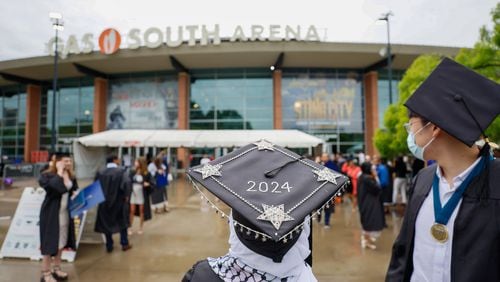Bill Bergman is a lecturer in marketing at the Robins School of Business at the University of Richmond, where he teaches in the undergraduate and MBA programs. In a guest column, Bergman discusses how his undergraduate students surprised him with their fortitude and resilience while at a national competition recently at Kennesaw State University.
By Bill Bergman
I had just about given up on Gen Z until I took a recent trip with two college seniors to the National Collegiate Sales Competition held at Kennesaw State University. I was the team’s faculty coach. By the end of our three-day trip, the experience changed my view of Gen Z. I discovered this generation had emerged from the onslaught of technology and the solitude of the pandemic tougher and more prepared to face the real world than I had previously thought.
Most Gen Z college students are unaware of how to cope with failure. They have been protected from birth by helicopter/snowplow parents who shielded them from life’s normal disappointments. Plus, runaway grade inflation eliminated facing failure in the classroom because almost every student gets an unusually high grade.
Credit: Courtesy Photo
Credit: Courtesy Photo
Since our university had performed well in several sales competitions at other universities, my confidence was high when we arrived at the National Collegiate Sales Competition at Kennesaw. While this was the first time we were participating in the event, I was confident we would be a winner, even though it was referred to as the “Super Bowl” of collegiate sales competitions.
When the first-round rankings were posted, both of our students scored in the bottom half of the competing schools. We were stunned.
What astonished me was how our team reacted to their lack of success. They weren’t sad or even making excuses for their individual performances. They were downright angry. There was fire in their eyes as we sipped Panera chicken noodle soup at lunch and replayed each minute of their selling role plays. Losing was not part of their Gen Z lexicon. They weren’t running away from the defeat; they were angered by it and ready to face it head on. They were determined to come back in the second round stronger and better.
Their vibrancy and fortitude were a pleasant surprise compared to what I had been witnessing from this generation recently in the classroom. Until this experience in Kennesaw, I believed Gen Z learned about defeat and failure from watching reality shows like “The Bachelorette.” My two sales team members might not have had much experience with defeat in their young lives, but it didn’t scare them like I expected. Instead, it motivated them to be better and stronger.
Parents and even professors do everything they can today to prevent young adults from experiencing failure. It took a trip to Kennesaw and the sales competition to discover that we do our kids and students a disservice by not letting them stumble and fail. Based on what I saw, failure is how they learn to do better.
I am especially proud of our team, who went on to the second round to perform at a significantly higher level. They left the competition more confident than when they arrived. They discovered an inner strength that cannot be taught in the classroom, where everyone gets a good grade these days. Instead, it must be learned the hard way by not always winning at everything they do.
Back in my professional selling classroom today, my two students who participated in the competition displayed more maturity and confidence than before. Something happened in those 72 hours in Kennesaw that changed our lives. The sales team members matured from being seniors in college to becoming young professionals who are now battle-tested and ready to enter the real world of business. Also, the experience made me better appreciate my Gen Z students. It showed me that a generation I had almost given up on has more inner strength, fortitude and promise when overprotective parents and educational institutions give them the freedom to fail.
About the Author








